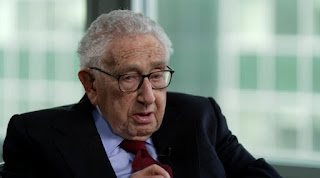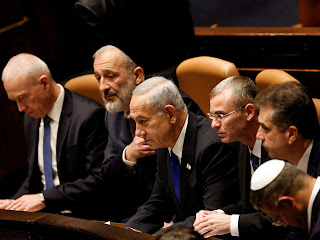Brexit and the useless sense of an unshared solidarity
When it came to joining the first European
supranational project, the 1951 European Coal and Steel Community, the answer
of the Great Britain was not so enthusiastic , believing that European
integration was not economic and political in nature and when few years later
in 1957 they have to choose between the British Commonwealth and the European
Economic Community (EEC) they once again unconditionally favoured the former,
complementing economic reasons to geopolitical ones, preferring belonging to
the 1960 European Free Trade Association (EFTA) that allowed Britain to free
trade with six other European States at the same time keeping its imperial
preference system. Its first entry into the EEC was in 1973, along with Ireland
and Denmark, but it has never been the happiest and satisfied of the Member
States, arriving to put to the test the population with the 1975 Referendum in
which, however, two-thirds of the votes cast favoured continued Union
Membership even though it wasn’t eased the UK stance as an awkward European
partner. With the coming into power of the Conservative party, Britain wanted
its “money back” obstructing, following the French example 20 years earlier,
the Council in 1982 in the so-called “rebate war”. Whereas for Britain the
single market was an end in itself that could raise to a European stage the
liberalizing and deregulatory element of the conservative Tatcher project, for
the European Commission it was a means to the end of a deeper economic and political
integration. This explained the British delusion and discontent before the
adoption of the Single European Act in 1986, rebearing in mind their unchanged
position before the initiative.
The 1992 TEU concluded in Maastricht set out for the foreign and security policy
and the justice and home affairs an intergovernmental structure, creating what
was at that time described as a “Europe of bits and pieces” , laying down the
foundation of the Economic and Monetary Union (EMU) against which the British
secured an opt-out and, having opposed further integration on social matter
opposing a second opt-out by the proposition of the “Agreement on Social Policy
concluded between the Member States of the EC with the exception of the UK of
Great Britain and Northern Ireland”. The same strategy of a differential,
rather than full membership surfaced with the 2007 Lisbon Treaty, where the UK
obtained a partial opt-out from the EU Charter of Fundamental Rights and completely
rejected the Union law on police and judicial cooperation in criminal matters other
than vetoing the EU Fiscal Compact. On the base of these perplexities and
reluctance, the referendum called the 23 June 2016 under Cameron government showed
off the UK wanted definitely to leave the European Union. Although under
British constitutional law referenda don’t have any binding legal force, from
that moment onwards UK began to prepare its withdrawal from the EU. What was
unclear was whether this parliamentary ratification would need to happen at the
beginning or at the conclusion of the withdrawal process, codified in the art.
50 of the TEU[1],
the 2007 Lisbon Treaty. In the 2017 Miller judgment[2]
was clarified that should have occurred a prior
consent by the British Parliement.
The European Union is not a sovereign State but
a Union of States, allowing its Members to withdraw or secede from it. While
article 50 (1) EU declares the sovereign right of each Member State to withdraw
from the Union, its intention must be notified to the European Council and for
UK this happened on 29 March 2017 under the government presided by Theresa May.
The obligation of negotiating the withdrawal
agreement by both EU and UK must be characterized by specific procedural and
Institutional aspects: in the aftermath of the Brexit Referendum, the UK
created a new Ministry: the Department of Exiting the European Union (DExEU), headed
by the Secretary of State David Davis with the task of ensuring an orderly
Brexit and to conduct the international negotiations with the EU. Moreover, a
Joint Ministerial Committee on EU Negotiations has been established so as to
allow the heads of the Northern Ireland, Scotland and Wales administration to
participate in negotiations. The EU Chief Negotiator Michael Barnier headed a
small team of experts on issues ranging from the internal market to
international Trade and have the main responsibility to report to the European
Council, the Council and the Parliement.
The European Council insisted on a “phased approach” according to it
must be distinguished a first approach for dealing with issues directly
resulting from withdrawal, in particular the situation of citizens that have exercised
their free movement rights, that deriving from old obligations will be
guaranteed; the financial settlement for British commitments, in relation to
the EU have followed a “divorce model” that kept on consider UK obliged to the
old liabilities that sharply contrasted with the “club model” backed by UK according
to this latter leaving the EU by virtue of art. 50 TEU is no more liable for
outstanding financial obligations under the EU budget and, finally, the Irish
questions. The impact of Brexit on the
Irish border and its adjacent polities involves changes in trade, customs,
immigration checks, local economies, services, recognition of qualifications,
medical cooperation, and other matters, now that it is the only external
EU land border between the UK and the EU.
After the UK Parliament
voted to leave the EU, all parties said that they want to avoid a hard
border in Ireland, due particularly to the border's historically sensitive
nature. Border issues were one of three areas of focused negotiation in
the Withdrawal Agreement. Following theUK exit from the EU on 31
January 2020, under the guidance of the leader of the Conservative Party,Boris Johnson, this border is also the frontier between the EU and an external
country. The Northern Ireland Protocol of the Brexit withdrawal
agreement commits the UK and the EU to maintaining an open border in Ireland,
so that (in many respects) the de facto frontier is the Irish
Sea Border between the two islands. This requires the continued
application of the Common Travel Area as well as free trade of goods (including
electricity) between Ireland and Northern Ireland. The latter requires the UK
to follow EU law in Northern Ireland with respect to these areas, with
jurisdiction of the ECJ in the interpretation of the law.
A second phase that would eventually turn to the future framework of
cooperation between the UK and the Union for the transitional period of two
years, during which the UK would still need to apply all EU law and continue to
participate in the Custom Union and the
Single Market, even if not considered any more as a Member.
The British process of treaty ratification was determined by two acts, the Constitutional Reform and Governance Act
2010 and the European Union Act 2011, to be applied and considered along with
the Withdrawal Agreement. The European Union Act 2011 contains a special
ratification procedure[3].
On the other side, the EU set out that the agreement shall be concluded on
behalf of the Union by the Council, acting by a qualified majority, after
obtaining the consent of EU Parliement and the Member of the Council
representing the withdrawing Member State shall not participate in the
discussion in the Council.
The EU law would continue to extend to the UK until 1972 European
Community Act was itself repealed. That’s why the British government prepared
the Great Repeal Bill, considering the previous act not as a source of EU law
but as a sort of “conduit pipe”, a bridge, through which the EU laws flows in
the UK domestic law. “Retained Union law” will continue to enjoy supremacy over
British law adopted prior to Brexit whereas any British legislation adopted
after Brexit will be able to amend or repeal retained EU law. The jurisprudence
of the ECJ will cease to be binding on British Courts after Brexit. The jurisprudence
of ECJ will continue relating to the retained case law.
As it concerns the framework for the future have been proposed several
models: the Norway Model focused on the EEA, the Turkey model or custom Union
model, the WTO model and the finally welcomed Canada model, establishing
preferential or non-preferential trade agreements going beyond the WTO treatment, by creating
a custom union or a free trade area. An outstanding example of preferential
agreements is CETA: the free trade agreement concluded in 2017 between EU and
Canada, strengthening their economic relations, while building their respective
rights and obligations under the WTO, creating a free trade market for goods
and services throughout the reduction or elimination of barriers to trade and
investment, each part developing its own commercial policy vis-à-vis the rest
of the world.
The EU-UK Trade and Cooperation Agreement (TCA) was finally signed on 30 Dec 2020 between EU, UK and Euratom, after the end of the transition period, before entering into force the 1st May 2021. The agreement provides for free trade in goods and limited mutual market access in services, as well as for cooperation mechanisms in a range of policy areas, transitional provisions about EU access to UK fisheries and UK participation in some EU programmes. Moreover, two separate treaties were negotiated and ratified relating to classified information and the field of nuclear energy.
In conclusion, the Great Britain has always
tried to demonstrate its singularity in all the main aspects of its political
involvement in the international relations with the other States and
international organizations. It has always been shown off its flair for making
its mark of distinction, proud of their own traditions residing in its national
sovereignty and its Commonwealth always preferred as a market area of exchanges
of goods, services and capitals in comparison with other free market
areas. On the wave of the upsurging
nationalisms all over the world and emerging a useless sense of an unshared
solidarity, attached to the privileges and advantages that its imperialism and
spheres of influence exert in the international panorama, they have always been
keen to remark their undebated leadership and their determination to stay
isolated in its relationship with its colonies consecrating and bolstering the
supremacy of the Kingdom. What differs
from the participation to the EU respect other international organization is
the political inconsistence of the former, born gathering a number of States,
not just in force of their common values, or a improper customised design of
common identity for financial and economic reasons (Ceca,Euratom). Enough to
say that we must have waited 50 years before a European Convention of Human
Rights has been proposed and included in the Treaties, not being existent in
the founding ones. More than this UK doesn’t share not only political values
but also juridical heritage and common system, being focused on common law and
unwritten constitution and not being rules by civil law. In that, in fact it’s
much closer the tie that binds the Kingdom with their ex- North America
colonies, USA and Canada. Thus being the origin of the EU the purpose to save
from collapse and economic recession and public debt the greatest part of its
component, Uk has reasonably no intention to bear this disproportionate burden
that damages Uk, confident that not being confined in a secluded isolation and
making room for much more relaxed ranges of cooperation, could stand still in
the competitiveness of the international financial markets. Since the
beginning, in fact, it rejected the EMU and the adoption of a common currency,
as well as being reluctant to make their contributions to the EU in change of
poor gains and compensations. By its exit from the organization the UK sets itself
free from the cross to fill the gaps of the economies of the greatest part of
the other EU countries , unsurpassed just by Germany and France, sure to
overcome the new challenges of the financial markets, by virtue of its
participation to all the main western international organization, among which
WTO, UN and Nato and new solutions and partnerships.
[1] According to this article “(1)Any
Member State may decide to withdraw from the Unionin accordance with its own
constitutional requirements. (2)A Member State which decide to withdraw shall
notify the Euopean Council of its intention. In the light of the guidelines
provided by the European Council, the Union shall negotiate and conclude an
agreement with that State, setting out the arrengements for its withdrawal,
taking in account of the framework for its future relationship with the Union.
That agreement shall be negotiated in accordance with art. 218 (3) of the
Treaty on the Functioning of the European Union. It shall be concluded in
behalf of the Union by the Council, acting by a qualified majority, after
obtaining the consent of the European Parliement. (3)The Treaties shall cease
to apply to the State in question from the date of entry into force of the
withdrawal agreement or, failing that, two years after the notification
referred to in paragraph 2, unless the European Council, in agreement with the
Member State concerned, unanimously decides to extendthis period. (4) For the
purposes of paragraph 2 and 3, the Members of the European Council representing
the withdrawing Member State shall not partecipatein the discussions of the
European Council or Council or in decisions concerning it. A qualified majority
shall be defined in accordance with article 238 (3) of the Treaty of
Functioning of the European Union.
[2] R. (Miller) v. Secretary of State
for exiting the European Union, 2017, UKSC5.
[3] Treaties amending or
replacing TEU or TFEU
(1)A Treaty
which amends or replaces TEU or TFEU is not to be ratified unless
-a
statement relating to the treaty was laid before Parliement in accordance with
section 5;
-the
treaty is approved by Act of Parliement
- the
referendum condition or the exemption condition is met.
(2)
The referendum condition is that
-the
Act providing for the approval of the treaty provides that the provision
approving the treaty is not to come into force until a referendum about whether
the treaty should be ratified has been held throughout the UK or, whether the
treaty also affects Gibraltar, throughout the UK and Gibraltar
-the
referendum has been held, and
-the
majority of those voting in the referendum are in favour of the ratification of
the treaty.
(3)the
exemption condition is that the Act providing for the approval of the Treaty
states that the treaty doesn’t fall within section .





Comments
Post a Comment